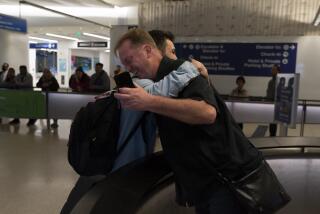Getting at the Secrets
- Share via
Congress wants to expose all the facts in the Iran- contra scandal. Lawrence E. Walsh, the independent counsel, wants to identify possible wrongdoing and build a case for prosecuting the wrongdoers. There is a potential for conflict in these separate roles. Witnesses can’t be compelled to tell Congress things that can be used against them in subsequent prosecutions. But they can be granted limited immunity, which puts whatever self-incriminating testimony they may give Congress out of bounds so far as the prosecutor is concerned. Would limited immunity thwart the ends of justice by insulating lawbreakers from punishment? It need not, as the agreement reached by Walsh and congressional investigators shows.
Under that agreement, Walsh will be given more time to develop criminal cases against former National Security Adviser John M. Poindexter and his aide, Lt. Col. Oliver L. North. Congressional investigators won’t talk to Poindexter in closed session until after May 2, and he won’t appear in public hearings until sometime in June. North won’t be called to testify before June 15. Both men, under current plans, will be granted limited immunity. This means that they can’t continue to plead protection against self-incrimination, because their testimony can’t be used to prosecute them.
Meanwhile Walsh, without reference to what Congress is doing, will be free to gather evidence for use in prosecutions. This approach, used in some Watergate investigations, satisfies interests on both sides. Poindexter and North between them probably know most of the secrets of the arms-for-hostages deal with Iran and the diversion of money to the contras. Under limited immunity they must tell what they know or face contempt-of-Congress charges. Walsh thinks he can build his criminal cases independently. There seems a good chance that both the need to get at the truth and the need to prosecute lawbreakers will be met.
More to Read
Get the L.A. Times Politics newsletter
Deeply reported insights into legislation, politics and policy from Sacramento, Washington and beyond. In your inbox twice per week.
You may occasionally receive promotional content from the Los Angeles Times.










